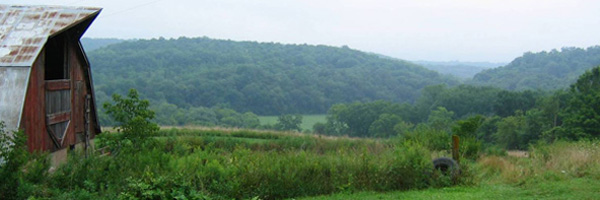
ECOLOGY & CONSERVATION BIOLOGY
IN THE MILLER LAB

ECOLOGY & CONSERVATION BIOLOGY
IN THE MILLER LAB
Curriculum Vitae (PDF)

Education
Ph.D., Ecology, Colorado State University (1999)
M.S., Wildlife Biology, Colorado State University (1994)
B.S., Wildlife Biology, Colorado State University (1991)
Research Interests
My research aims to advance our understanding of ways to accommodate the needs of native species in landscapes dominated by human activities. I think that success in this endeavor is vital to the persistence of biodiversity generally, as well as to our own quality-of-life.
Personal Interests
I really enjoy playing the guitar and plunking around on other stringed instruments. Camping, canoeing, and hiking are my favorite ways to get away, but I’ll also settle for a walk with our dog in a local park for an hour or two. More than anything, I like spending time with my family, playing with my son and daughter, and (on very special occasions) going on a date with their mom.
Select Publications
Miller, J.R., and B.T. Bestelmeyer. 2016. What’s wrong with novel ecosystems, really? Restoration Ecology 24:577-582.(Editor’s choice)
Duchardt, C.J., J.R. Miller, D.M. Debinski, and D.M. Engle. 2016. Adapting the fire-grazing interaction to small patches in a fragmented landscape for grassland bird conservation. Rangeland Ecology and Management 69:300-309.
Hovick, T.J., and J.R. Miller. 2016. Management stabilizes eastern meadowlark nest survival in fragmented Midwestern grasslands. American Midland Naturalist 176:72-80.
Fischer, J.D., S.C. Schneider, A.A. Ahlers, and J.R. Miller. 2015. Categorizing wildlife responses to urbanization and conservation implications of terminology. Conservation Biology 39:1246-1248.
Fischer, J.D., and J.R. Miller. 2015. Direct and indirect effects of anthropogenic bird food on population dynamics of a songbird. Acta Oecologica 69:46-51.
Lyons, T.P., J.R. Miller, D.M. Engle, and D.M. Debinski. 2015. Predator identity influences the effect of habitat management on nest predation. Ecological Applications 25:1596-1605.
Schneider, S.C., J.D. Fischer, and J.R. Miller. 2015. Two-sided edge response of avian assemblages in an urban landscape. Urban Ecosystems 18:539-551..
Cleeton, S.H., and J.R. Miller. 2014. Assessing the response of woodland songbirds to invasive vegetation in a metropolitan environment. Condor 116:459-471.
Harr, R.N., Morton, L. Wright, S.R. Rusk, D.M. Engle, J.R. Miller, and D.M. Debinski. 2014. Landowners’ perceptions of risk in grassland management: Woody plant encroachment and prescribed fire. Ecology and Society 19(2):41.
Hovick, T.J., and J.R. Miller. 2013. Heterogeneity at multiple scales influences parasitism rates of a grassland bird. Landscape Ecology 28:1493-1503.
Miller, J.R. 2012. Avian conservation in urban environments – what do ecologists bring to the table? Studies in Avian Biology 45:201-214. (invited paper)
Fischer, J.D., S.H. Cleeton, T.P. Lyons, and J.R. Miller. 2012. Urbanization and the predation paradox: the role of trophic dynamics in structuring wildlife communities. Bioscience 62:809-818.
Miller, J.R., D.M. Engle, L. Wright Morton, D.M. Debinski, and R.N. Harr. 2012. Nature reserves as catalysts for landscape change. Frontiers in Ecology and the Environment 10:144-152.
Contact